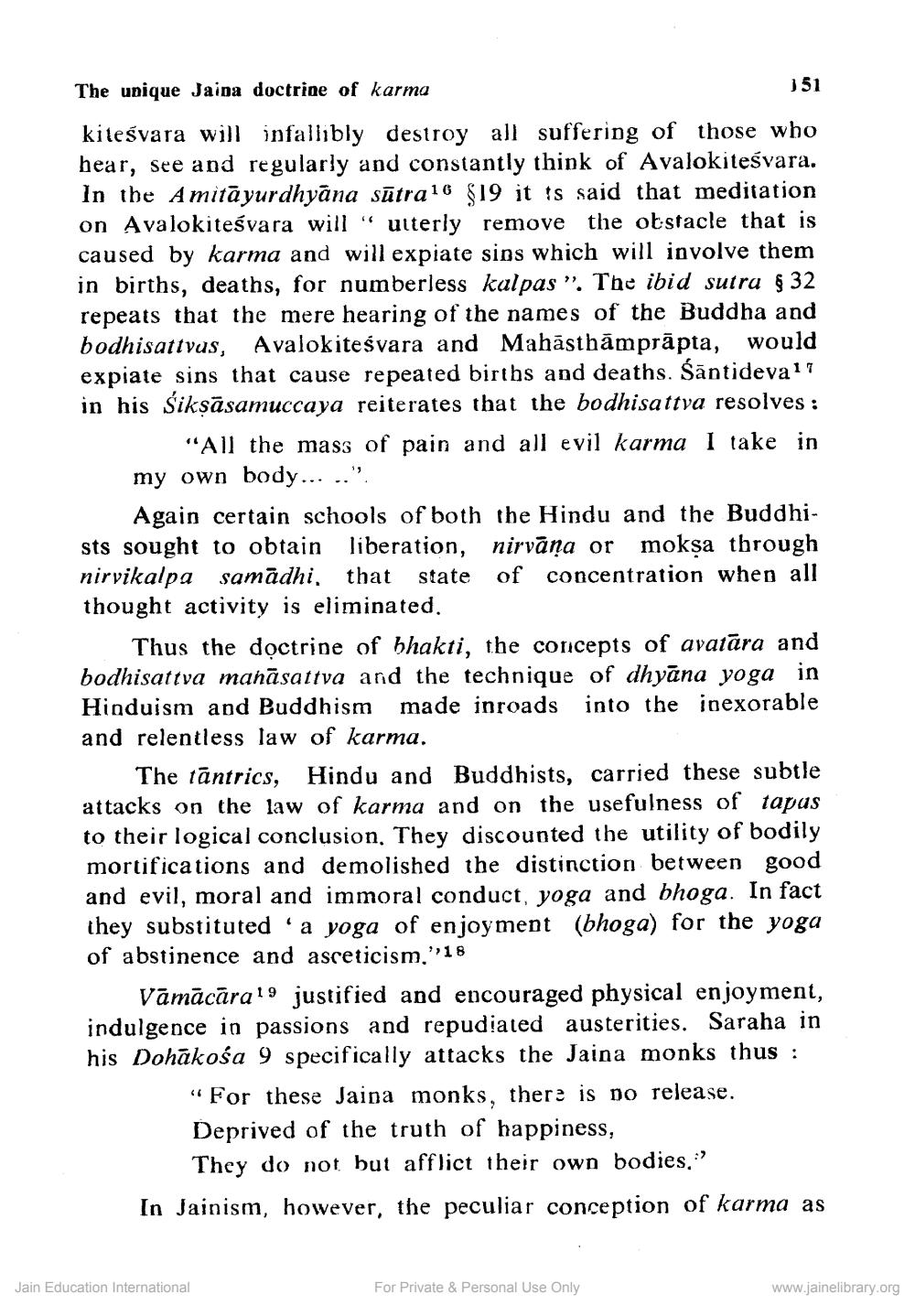________________
The unique Jaina doctrine of karma
151
kiteśvara will infallibly destroy all suffering of those who hear, see and regularly and constantly think of Avalokitesvara. In the Amitāyurdhyāna sūtra16 $19 it is said that meditation on Avalokitesvara will " utterly remove the obstacle that is caused by karma and will expiate sins which will involve them in births, deaths, for numberless kalpas". The ibid sutra § 32 repeats that the mere hearing of the names of the Buddha and bodhisattvus, Avalokitesvara and Mahāsthāmprāpta, would expiate sins that cause repeated births and deaths. Sāntidevalt in his Siksāsamuccaya reiterates that the bodhisattva resolves :
"All the mass of pain and all evil karma I take in my own body... ..".
Again certain schools of both the Hindu and the Buddhists sought to obtain liberation, nirvāṇa or moksa through nirvikalpa samadhi, that state of concentration when all thought activity is eliminated
Thus the doctrine of bhakti, the concepts of avatāra and bodhisattva manāsattva and the technique of dhyāna yoga in Hinduism and Buddhism made inroads into the inexorable and relentless law of karma.
The tāntrics, Hindu and Buddhists, carried these subtle attacks on the law of karma and on the usefulness of tapus to their logical conclusion. They discounted the utility of bodily mortifications and demolished the distinction between good and evil, moral and immoral conduct, yoga and bhoga. In fact they substituted a yoga of enjoyment (bhoga) for the yoga of abstinence and asceticism.''18
Vāmācāra19 justified and encouraged physical enjoyment, indulgence in passions and repudiated austerities. Saraha in his Dohākośa 9 specifically attacks the Jaina monks thus :
“For these Jaina monks, there is no release. Deprived of the truth of happiness,
They do not but afflict their own bodies.:' In Jainism, however, the peculiar conception of karma as
Jain Education International
For Private & Personal Use Only
www.jainelibrary.org




